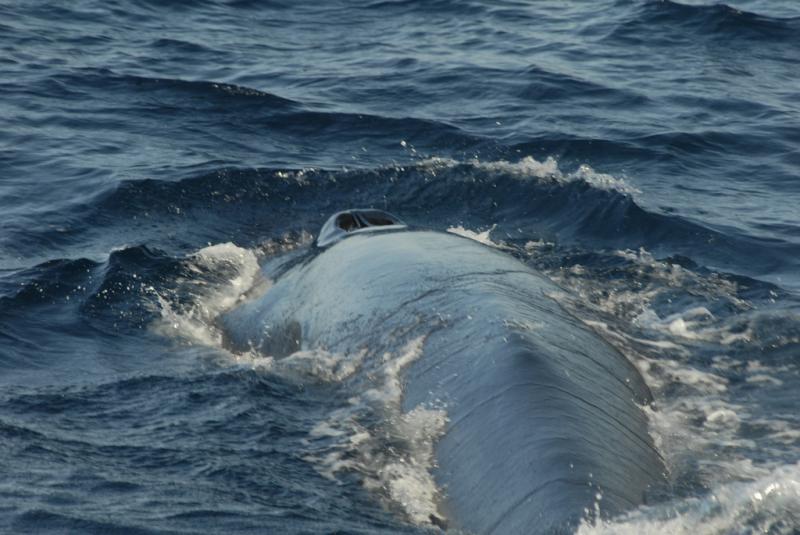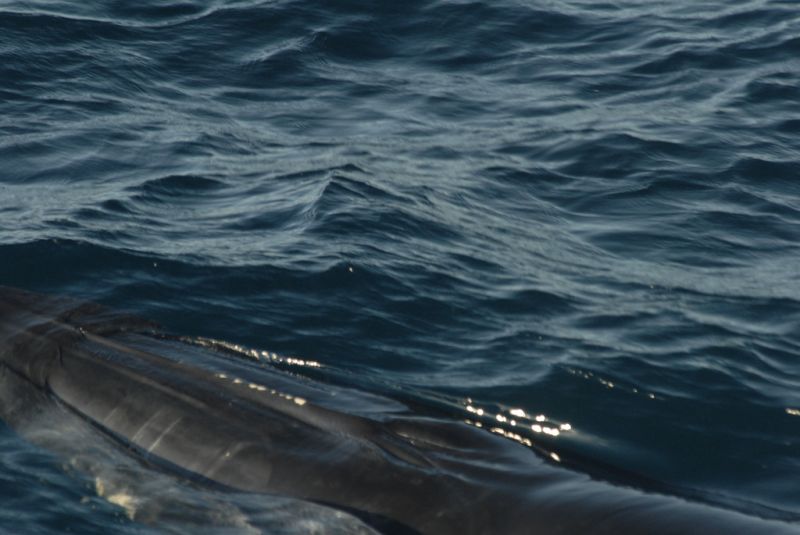Wildlife North America . com North American Animals - mamals, birds, reptiles, insects |
Bryde's Whale (Balaenoptera edeni)
Bryde's Whale photographed off Galapagos, Equador. Photograph by Fredrik Wallenberg. Some rights reserved. (view image details) 
Bryde's Whale photographed off Galapagos, Equador. Photograph by Fredrik Wallenberg. Some rights reserved. (view image details)
BRYDE'S WHALE FACTS
DescriptionBryde's Whale is dark gray with a yellowish white underside. It is the second smallest rorqual (after the Northern Minke Whale). It has three parallel ridges in the area between the blowholes and the tip of the head. The dorsal fin is sickle shaped and the flippers are small relative to body size.Bryde's Whale has two rows of baleen plates on the top jaw with about 300 plates on each side. Each baleen plate is short and wide - about 50cm x 19cm. Size Length: males 11.9m - 14.6m; females 12.2m - 15.6m Environment warm-temperate and tropical waters Food small fish (pilchard, mackerel, herring), crustaceans (shrimp, crabs), also some octopus and squid. Eats more fish than many other baleen whales. Breeding A single calf is born after gestation period of 12 months. The calf is about 4m long at birth and weighs about 1000kg. Young are weaned after about six month. A female bears one calf every two or three years. Range warmer waters of Atlantic Ocean, Pacific Ocean and Indian Ocean. Conservation Status The conservation status in the 2004 IUCN Red List of Threatened Animals is "data deficient". Classification
Relatives in same Genus Northern Minke Whale (B. acutorostrata) Sei Whale (B. borealis) Blue Whale (B. musculus) Fin Whale (B. physalus) Home | Mammals | Reptiles | Birds | Insects | Privacy Policy | Disclaimer | Contact Us |